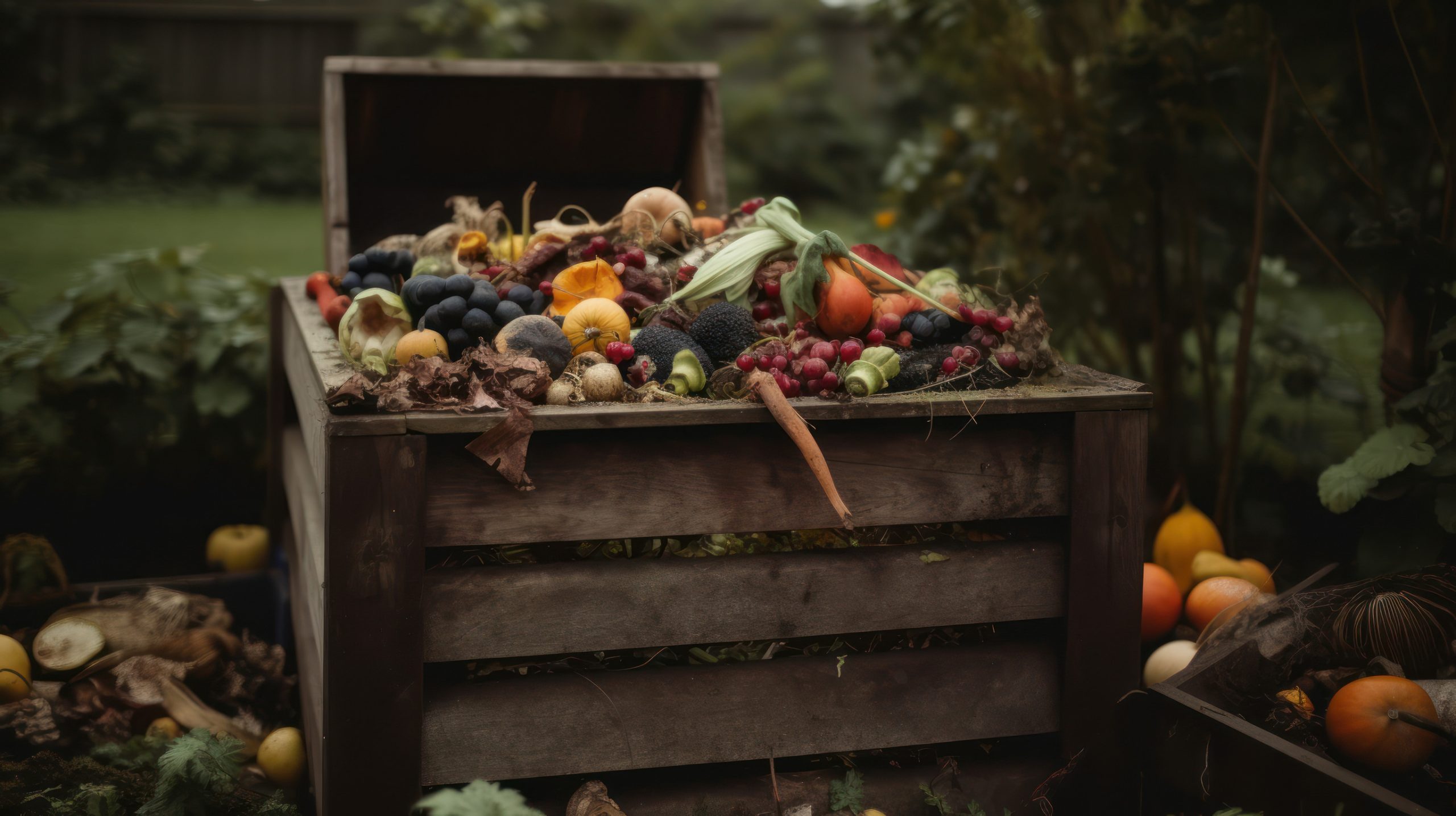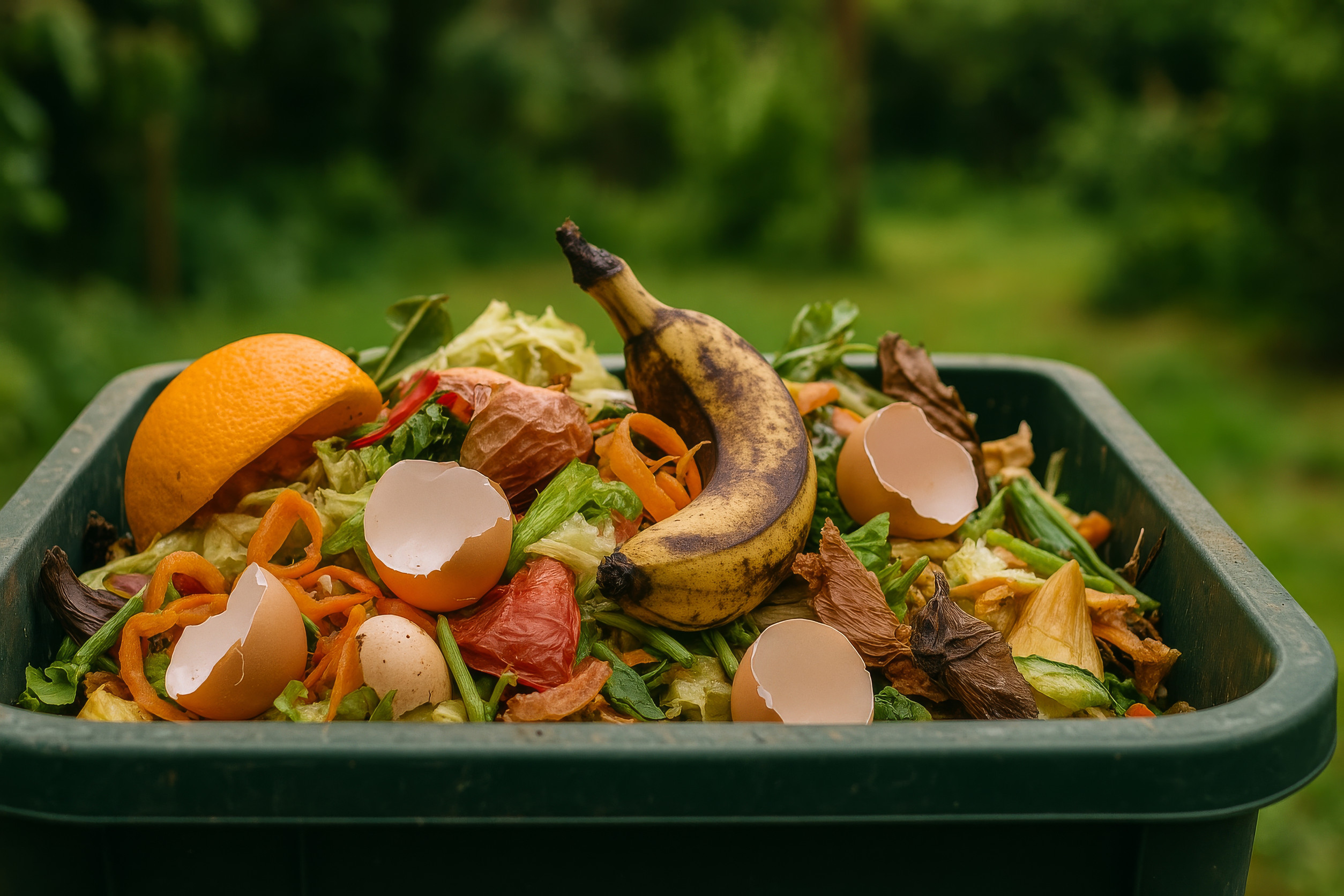
Image Source: 123rf.com
Crisp air, crunchy leaves, and pumpkin spice everything—fall is officially here. But while most people are busy decorating their porches with gourds, there’s another fall activity that deserves a spot on your to-do list: starting a compost pile.
That’s right, autumn is secretly the superhero season for turning kitchen scraps and yard waste into black gold for your garden. If you’ve been meaning to get into composting but never pulled the trigger, this is your sign.
Fall Leaves Are Nature’s Perfect Brown Material
If you’ve ever looked at composting guides, you know it’s all about balancing “greens” (like food scraps) with “browns” (like dried leaves). Fall just so happens to provide an endless supply of those perfect browns right at your feet. Bagging them up for the landfill is basically throwing away composting gold. Adding layers of leaves helps absorb moisture, reduce odors, and keep your pile nice and fluffy. With this much free material, your compost will be thriving before winter even sets in.
Cooler Weather Means Less Smell
Let’s be honest: composting in the blazing heat of summer can be a bit… aromatic. In fall, the cooler temperatures slow down any foul odors and make the whole process much more pleasant. You can still get good decomposition without attracting every fly in the neighborhood. Plus, working outside when it’s 60 degrees and breezy is way more enjoyable than sweating through a July afternoon. Composting in fall is a breath of fresh air—literally.
Yard Clean-Up Becomes Productive
Raking leaves, trimming perennials, and pulling out tired summer plants is part of every fall clean-up routine. Instead of stuffing all that organic matter into trash bags, toss it into your compost pile. Those withered tomato vines and crunchy corn stalks can be broken down into future garden gold. Composting gives a sense of purpose to your fall chores—it’s recycling at the highest level. By the time spring rolls around, you’ll be glad you turned that “waste” into wealth.
Perfect Timing for Next Year’s Garden
Here’s the beauty of fall composting: you’re starting months ahead of planting season. That means your pile has all winter to break down and transform into nutrient-rich soil by the time spring arrives. Even if the pile slows down in the cold, microbes will get right back to work once things warm up. Think of it like meal prepping for your garden—future you will be thrilled to have ready-made compost come planting day. It’s a head start that pays dividends when seedlings need that nutrient boost.
Fall Moisture Levels Are Ideal
Too much rain can drown a compost pile, and too little can leave it bone dry. Fall often brings just the right balance, with steady rains and cooler temps that keep the pile moist without turning it into a swamp. This natural equilibrium helps microbes thrive without you constantly running outside with a watering can. In many climates, autumn practically does half the work for you. It’s like the season itself is cheering for your composting success.

Image Source: 123rf.com
Holiday Scraps Give It a Boost
Fall also happens to be prime time for big meals and family gatherings. From Halloween pumpkins to Thanksgiving leftovers, you’ll have a steady supply of food scraps that can feed your compost pile. Instead of tossing out potato peels or apple cores, throw them into your bin. Holiday waste quickly becomes compost treasure. By embracing the season’s abundance, you’ll have a pile that’s lively, diverse, and working double-time.
Fall Into Composting
Starting a compost pile doesn’t have to feel like a chore—especially in fall. With leaves piling up, gardens winding down, and cooler air making outdoor work pleasant, the season practically begs you to give composting a shot. You’ll set yourself up for a garden that thrives next spring while cutting down on waste right now.
Ready to jump in? Share your composting stories, tips, or even your funny compost fails in the comments section below.
You May Also Like…
The Secret Ingredient That Makes Compost Work Twice as Fast
How to Build a Compost Bin Outdoors in 5 Simple Steps
Use These 8 Winter Composting Tips for Gardeners
7 “Natural” Fertilizers That Can Backfire on Your Health
How to Grow Basil That Doesn’t Bolt in the Heat
Leave a Reply